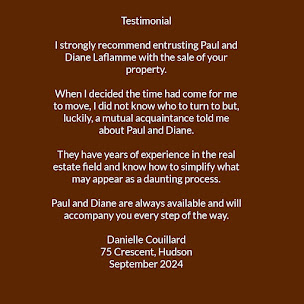Clutter diet will simplify daily life, author says
By Mary Beth Breckenridge, McClatchy News Service
Chances are you know how it feels to put on excess pounds. You're uncomfortable. Nothing fits right. Everything seems to take more effort. Sharon Kreighbaum believes that's how it is with houses, too. The Hudson, Ohio, resident has written Is Your House Overweight?
Recipes for Low-Fat Rooms, a guide to putting a home on a clutter diet. The book, released Tuesday, helps readers streamline their homes and set them up in a way that simplifies day-to-day life.
The book's premise is that a bloated house is an uncomfortable one. Clutter gets in our way, increases our stress and wastes our time, energy and resources.
The self-published book grew out of Kreighbaum's work as an interior designer and home stager, as well as her early experience as a kitchen designer.
She also was inspired by a few people in her life, she said.
One is her husband, Mark, whom she described as a minimalist. Another is a cousin in California whose home was devastated by an earthquake, but who decided not to replace many of her possessions because she realized she didn't need them. The third is her brother, a priest who once lived in a monastery in Italy with just one closet and one dresser.
He always looked sharp, even with a limited wardrobe, she said. "He had such a full, rewarding life living without stuff."
Kreighbaum said she's incorporated those lessons in her work, and she's seen the difference decluttering can make in her clients' lives. One couple even lost weight after their house did, probably because decluttering lowered their stress and freed space in their kitchen so they could more easily cook and eat healthy at home, she said.
A clutter-free home, however, doesn't have to be a spare one, Kreighbaum insisted. After all, she loves surrounding herself with beautiful things just as much as her clients do.
"You can live with luxury, but just enough that it's not clutter," she said.
Clutter, she said, comes from indecision. Things accumulate because we haven't decided how to handle them or where to put them. Then, she said, we set ourselves up for the frustration and wasted time of continually searching for things.
So one of the keys to Kreighbaum's approach is assigning everything a home, which should be where you use the item or where you need it - your purse and cellphone near the door, for instance, and your dishes within reach of the dishwasher.
Another is deciding which activities you want to happen regularly in each room and then keeping in it only the things that support those activities. In a kitchen, for example, that might mean putting the everyday items in easy reach, storing seldom-used serving pieces in less accessible spots and finding other homes for the backpacks, mail, paperwork and other things that tend to accumulate there.
Think of it as living like you're on vacation, Kreighbaum said. Even the most luxurious hotels and vacation homes contain only the things their guests will need during their stays.
"Any more than that and we wouldn't be able to relax and unwind," she writes in the book.
Decluttering saves money, too. Not only will you stop buying things that don't enrich your life, she said, but you'll also have a better handle on what you do own so you won't spend money on duplicates.
TIPS FOR A CLUTTER-FREE HOME
- Declutter with a friend. He or she can provide objectivity and encourage you to keep going.
- Declutter a room by taking everything out and then sorting items into four laundry baskets marked "keep," "move" (to another room, that is), "throw away" and "donate." Return to the room only the things that you love and that serve your needs.
- In a pantry or kitchen cupboard, store like items together. You can see at a glance whether you need more of something, so you won't overbuy or come up short.
- A single, large item makes a bigger decorative impact than a lot of small items.
- Display special items by themselves - for example, hang a painting over a mantel that has nothing else on it. It will command more attention without the other distractions.
- Gifts and inheritances can be the biggest stumbling blocks to decluttering. Remember that when someone gives you a gift, the intention isn't to burden you with it. If it doesn't enhance your life, it's OK to sell it or give it away. Taking a picture of it first leaves you with a lasting memory.
© Copyright (c) McClatchy-Tribune Information Services
Monday, November 14, 2011
Subscribe to:
Comments (Atom)







